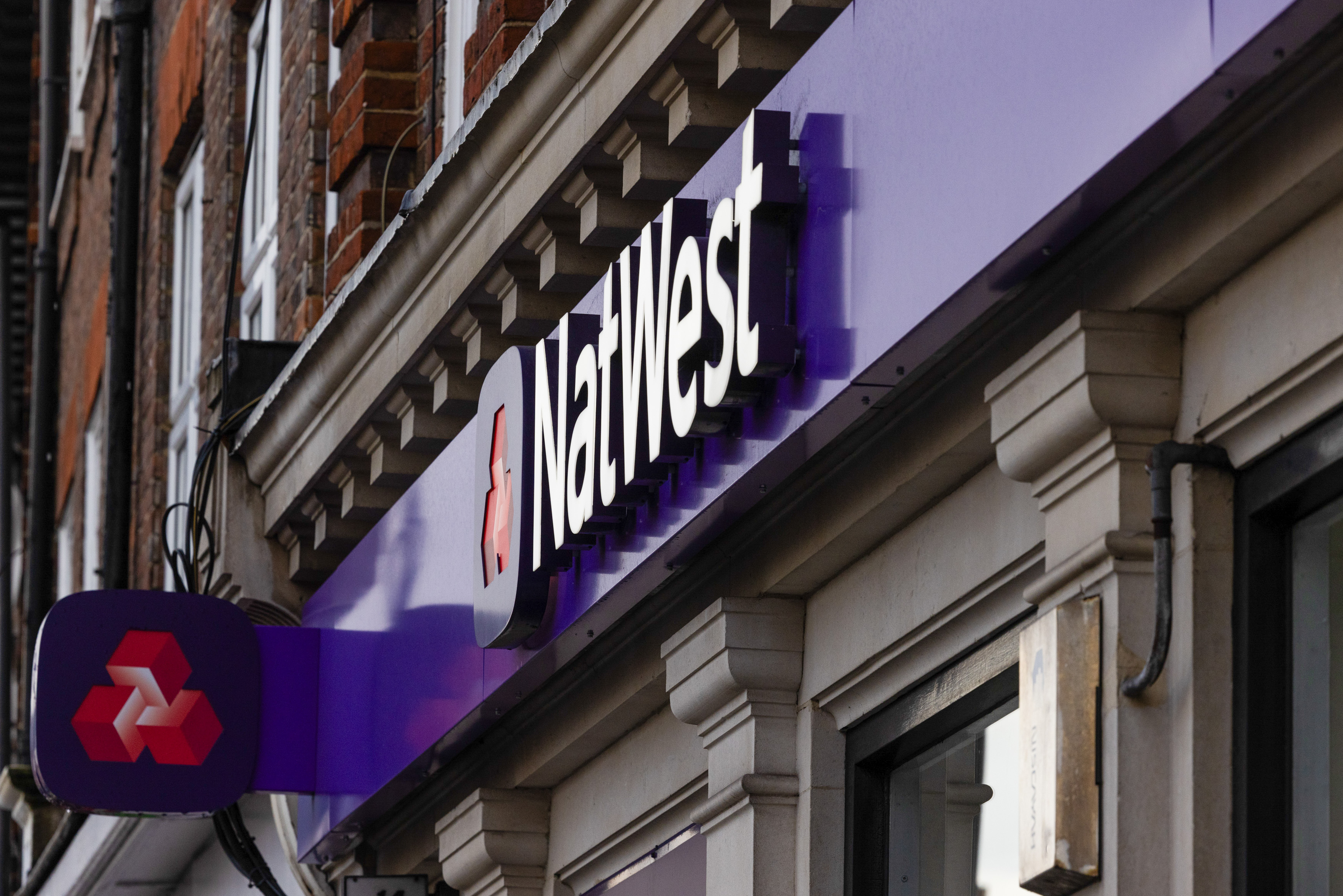Lehman collapse: it’s bad and it’s going to get worse
Many people assumed Lehman Bros was 'too big to fail' - that there would be another government bailout. But no - this time the market will have to deal with the mess itself. And as Lehman's bones are picked over, it will become clear to us all just how badly damaged the financial system is.

Get the latest financial news, insights and expert analysis from our award-winning MoneyWeek team, to help you understand what really matters when it comes to your finances.
You are now subscribed
Your newsletter sign-up was successful
Want to add more newsletters?

Twice daily
MoneyWeek
Get the latest financial news, insights and expert analysis from our award-winning MoneyWeek team, to help you understand what really matters when it comes to your finances.

Four times a week
Look After My Bills
Sign up to our free money-saving newsletter, filled with the latest news and expert advice to help you find the best tips and deals for managing your bills. Start saving today!
Finally. The Federal Reserve found a big bank that wasn't "too big to fail".
158-year old Lehman Brothers, the fourth-biggest US investment bank, has just made history. It's become the biggest bankrupt ever after collapsing with $613bn in debt, reports Bloomberg.
The group has filed for Chapter 11 bankruptcy protection, after various attempts to find someone to buy it over the weekend (more overtime for Hank Paulson and the Treasury) failed.
MoneyWeek
Subscribe to MoneyWeek today and get your first six magazine issues absolutely FREE

Sign up to Money Morning
Don't miss the latest investment and personal finances news, market analysis, plus money-saving tips with our free twice-daily newsletter
Don't miss the latest investment and personal finances news, market analysis, plus money-saving tips with our free twice-daily newsletter
As if that wasn't enough heart-stopping news for the markets, we've also got the fact that Merrill Lynch has been bought by Bank of America for a deal worth at least $44bn, and insurance giant AIG has asked the Federal Reserve for a $40bn bridge loan.
All I can say is this is going to be a day to remember for all the wrong reasons
"This isn't the beginning of the end, but it might be the end of the beginning."
How many times have you heard that phrase so far during the credit crunch? They said it after Bear Stearns, it was half-heartedly muttered after Fannie and Freddie (or 'Frannie', as Charles Dumas at Lombard Street Research handily calls them) were nationalised a couple of people even suggested if after the death of Northern Rock, for goodness' sake but every time, it's been wrong.
Everyone assumed that Lehman Brothers would be bailed out
It's too early to say if it'll be any more correct this time round. It certainly feels like the biggest disaster so far. And more to the point, it has the element of surprise which earlier events didn't. Everyone knew Lehman Brothers was in trouble, but the assumption was that it would be bailed out, just as everyone assumed Frannie and Bear Stearns would be saved.
However, now we'll get to see what a major investment bank failure looks like at firsthand. Sure, it's Chapter 11 bankruptcy, which is very different to liquidation half the US airline industry (or it seems like it at least) is in Chapter 11 at any given moment in time but it's still bankruptcy.
"We will be entering uncharted territory," Ladenburg Thalmann & Co analyst Richard Bove told Bloomberg. "Forcing liquidation will set off problems in other companies and markets everywhere." But then, as Gilbert Schwartz of Schwartz & Ballen puts it, "if every time a big institution went bust the markets expected the government to step in, no one would ever adapt."
This is the thin silver lining on this particular blow-up. The market's worst fears have been realised. The event that governments, regulators and finance bosses have been trying to avoid has finally happened, and the market is just going to have to deal with the fallout.
We are nowhere near the end of the crisis
Of course, that doesn't mean that it's time to pile into financials, or any other stocks for that matter. It just means that things are even worse than most people had dared believe. "This just confirms that we are nowhere near the end of the crisis. And it could get really ugly in the next six months or so because there's a lot more to be uncovered," said Christopher Moltke-Leith at Saxo Capital Markets in Singapore, to Reuters.
This is the problem. We're now reaching the stage at which no one can pretend that all the dodgy assets on banking books can just be ignored. As Lehman is unwound, and with insurance giant AIG also planning a massive firesale, it's going to become increasingly obvious just how badly damaged the financial system is, and how little value is left on balance sheets.
It's not as if the banks have given up trying to find ways to bail each other out. Ten of the world's biggest banks also agreed to establish a $70bn emergency fund over the weekend, which any one of them will be able to tap up to a third of. Though one wonders what will happen if more than three of them need to borrow the money at the same time.
As Alan Greenspan puts it (without a blush, incredible given the former Fed chairman's role in creating the easy credit conditions that led to this point) "we will see other major firms fail."
"This will be the first time we've tested how much damage will be done by a bankruptcy," says David Kotok of US money management group Vineland to Bloomberg. It's not going to be pretty.
Get the latest financial news, insights and expert analysis from our award-winning MoneyWeek team, to help you understand what really matters when it comes to your finances.

-
 BBC TV licence fee hike confirmed: can you reduce how much you pay?
BBC TV licence fee hike confirmed: can you reduce how much you pay?The cost of a TV licence fee is set to rise by over 3%, but there are ways to reduce the bill.
-
 NatWest to close 32 more bank branches – see the full list
NatWest to close 32 more bank branches – see the full listNatWest is closing 32 branches in 2026 and 2027. Will your local area be affected?
-
 How a dovish Federal Reserve could affect you
How a dovish Federal Reserve could affect youTrump’s pick for the US Federal Reserve is not so much of a yes-man as his rival, but interest rates will still come down quickly, says Cris Sholto Heaton
-
 'Investors should brace for Trump’s great inflation'
'Investors should brace for Trump’s great inflation'Opinion Donald Trump's actions against Federal Reserve chair Jerome Powell will likely stoke rising prices. Investors should prepare for the worst, says Matthew Lynn
-
 The challenge with currency hedging
The challenge with currency hedgingA weaker dollar will make currency hedges more appealing, but volatile rates may complicate the results
-
 Can Donald Trump fire Jay Powell – and what do his threats mean for investors?
Can Donald Trump fire Jay Powell – and what do his threats mean for investors?Donald Trump has been vocal in his criticism of Jerome "Jay" Powell, chairman of the Federal Reserve. What do his threats to fire him mean for markets and investors?
-
 Freetrade’s new easy-access funds aim to beat top savings rates
Freetrade’s new easy-access funds aim to beat top savings ratesFreetrade has launched an easy-access exchange traded fund (ETF) range - here’s how the ETFs work and how they compare to the savings market
-
 Go for value stocks to insure your portfolio against shocks, says James Montier
Go for value stocks to insure your portfolio against shocks, says James MontierInterview James Montier, at investment management group GMO, discusses value stocks and slow-burn Minsky moments with MoneyWeek.
-
 Where do we go from here?
Where do we go from here?Features A new series of interviews from MoneyWeek
-
 As China reopens, why pick an income strategy?
As China reopens, why pick an income strategy?Advertisement Feature Yoojeong Oh, Investment Manager, abrdn Asian Income Fund Limited